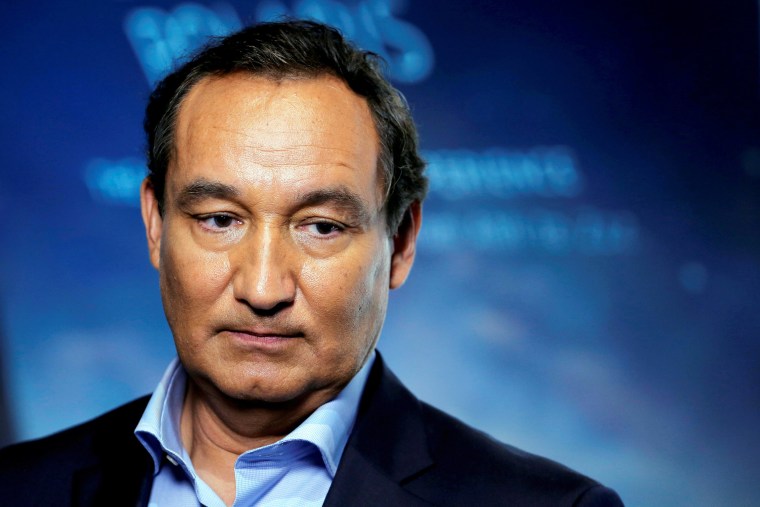After Chicago-based United Airlines laid out its 10-point plan to address the issue of a passenger being dragged down the aisle, industry insiders are praising the airline's policy changes.
"The United report is noteworthy not only for being comprehensive, but for being genuinely contrite and specific," said Henry Harteveldt, a travel industry analyst and president of Atmosphere Research Group. "But what matters now is how United lives up to, and perhaps even exceeds, the promises it makes."
George Hobica, of Airfarewatchdog.com, praised United for raising the maximum compensation for voluntary bumps to $10,000, as that should make involuntary bumps “extremely rare,” and for empowering its personnel to use competing airlines to transport bumped passengers.
“This is similar to the old Rule 240, which airlines were once required to include in their contracts of carriage,” he told NBC News.
Acknowledging that it was wrong in calling on law enforcement to resolve an airline policy issue, United now promises that its staff will call in law enforcement if there are safety or security concerns.
"A commitment to de-escalation in these instances is not only good practice for the future, it is absolutely essential if United hopes to regain the trust of travelers,” said Mary Kirby, founder of the Runway Girl Network.
Related: United Airlines Reaches Settlement with David Dao
While most of the changes on United’s 10-point list of customer service improvements directly relate to concerns raised by forced removal of a passenger, there are a few “bonus” promises on the list, such as giving staff authority to bestow customers with bonus mileage or other perks “on the spot” when things go wrong, and cutting down on the hassles and red tape involved with getting compensation for a lost bag.
"The $1,500 lost bag 'No questions asked' policy is unique as far as I can tell," said Hobica. "And an emphasis on giving employees the authority to do whatever it takes to make things right is especially welcome."
In the aftermath of United’s ‘passenger dragging' incident, other airlines have announced some policy changes as well, including raising compensation amounts for passengers giving up seats in oversold situations.
"Perhaps airlines are seeing it's time to fix their problems before they end up with lawmakers trying to fix them in ways that hamper their ability to safely, securely and efficiently get passengers to their destinations, while still making enough of a profit to continue to provide air service," said aviation security expert Jeff Price.
Shortly after United's announcement, Dallas-based Southwest Airlines released its own plans to end the practice of overbooking flights.
"I've made the decision and the company's made the decision that we'll cease to overbook going forward," Southwest CEO Gary Kelly told CNBC.
A spokeswoman for Southwest added that better forecasting tools and a new reservations system would essentially eliminate the airline's need to overbook flights.
